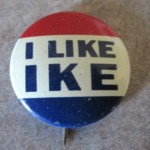 In the last post the issue of inductive inference was the focus, but human cognition, as Luke pointed out, is not just fallible but is unreliable by its very nature. Recent work has been revelatory in the ways our minds fail us when confronted with new information, and in the many ways that our experiences influence thought.
In the last post the issue of inductive inference was the focus, but human cognition, as Luke pointed out, is not just fallible but is unreliable by its very nature. Recent work has been revelatory in the ways our minds fail us when confronted with new information, and in the many ways that our experiences influence thought.
The idea that language and thought are tightly intertwined and that language may influence thought has been of interest since Sapir-Whorf‘s many flavors of snow, but became academically disreputable in the mid-20th Century as universality dominated linguistics via Chomsky. But the notion that language and thought are intertwined has continued to be investigated and recent work shows remarkable interactions.
Watching the messaging of the GOP Primaries between Gingrich and Romney (with Paul’s Libertarian dogs barking in the background), reminded me that there are other meta-cognitive strategies at work in our minds that are being exploited by the negative ads as well as the anti-Obama sentiment. But what is interesting is that some of the easiest ways of building positive sentiment are not being exploited. For example, a memorable jingle might be cheesy and retro, but would exploit the tendency for rhymes to be regarded as true. Using big, bold fonts for the message also helps.
I think it is time for the political jingle to return.